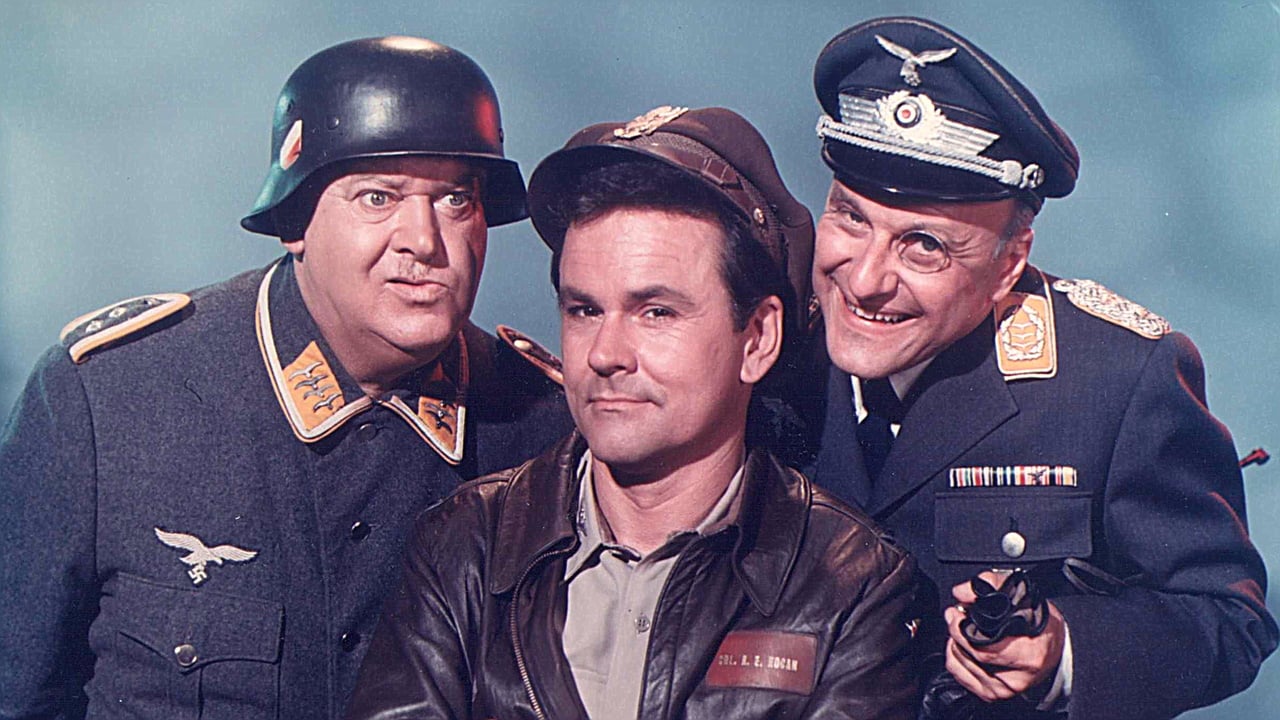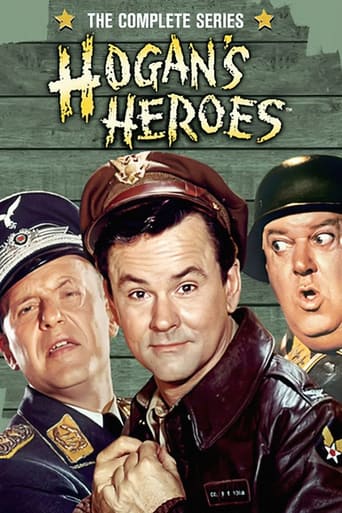

Am i the only one who thinks........Average?
... View MoreClever and entertaining enough to recommend even to members of the 1%
... View MoreAt first rather annoying in its heavy emphasis on reenactments, this movie ultimately proves fascinating, simply because the complicated, highly dramatic tale it tells still almost defies belief.
... View MoreEasily the biggest piece of Right wing non sense propaganda I ever saw.
... View MoreOkay, yes Hogan's Heroes was funny and it made the Nazi soldiers look like bumbling fools and send them up rather than glorifying them, which I guess is redeeming to the Americans and Allied soldiers who suffered in WW2 in the Nazi camps.But I do feel uncomfortable about the concept of Hogan's Heroes and the disrespect it shows to the Americans, Brits and other Allied soldiers who were captured. There was one comment who defended the show by saying that at least the Nazis were more human than the Japanese in WW2!!!! Yeah, that's great comfort to the 6 million who suffered. Can you imagine a Japanese version of Hogan's Heroes? Now that would be politically incorrect, just like Hogan's Heroes was politically incorrect!I must admit I found it a bit discomforting seeing acclaimed Jewish actors playing the Nazi guards.
... View More"Hogans Heroes" has just returned to UK television showing on the Forces TV satellite channel after a long period of absence from British television. First shown back in the 1960's I loved the show when I was a kid & it seems just as funny to me after all these years. It remains funny because, like Phil Silvers "Bilko" for instance, it was extremely well scripted & acted. Set in a WW2 POW camp it stars the excellent BobbCrane as the senior prisoner officer Colonel Hogan. Great too are Werner Klemperer as the bumbling camp commandant Colonel Klink & John Banner as prison guard Sergeant(I know nothing, NOTHING)Schultz. Regular guests were Leon Askin as the spiteful General Burkhalter & Howard Caine as Gestapo Officer Major Hochstetter. Both are excellent & usually give Colonel Klink a hard time. It also regularly features a bevy of gorgeous gals usually as secret agents like Nita Talbot, Arlene Martel & Victoria Carroll. Nita Talbot was in seven episodes playing a sexy Russian spy named Marya who was always a pleasure to watch & especially good, in my opinion. Two more regular beauties on the show were Sigrid Valdis & Cynthia Lynn playing Klink's secretaries Hilda & Helga respectively. At bottom line it is a really brilliant micky-take of Nazi Germany which it lampoonsvmercilessly. My only criticism about this sitcom is that the prisoners seem to be having such a great time during their incarceration that if life in a POW camp was half as much fun as this no-one would ever bother to try to escape! As another reviewer has said, "it would have Adolf Hitler turning in his grave!". If he got the chance he would have had the entire cast & crew lined up against a wall & machine-gunned!.
... View MoreThis series was screened a long time ago on British television and was an absolute scream.A captured middle-ranking commissioned US officer, Colonel Hogan does for his German captors what Seargent Bilko did for his own superiors. Except that whereas Bilko usually came unstuck, Hogan always wins through. The scenario really couldn't have worked otherwise. Every programme entails some scheme of varying weirdness in an attempt to hoodwink those devilish Nazis. The script is slickly funny and fast-spoken in a way that American humour does so well.Werner Klemperer plays the long-suffering and always-thwarted commandant with panache. With xx as Seargent Schultz who only wants a quiet life, and - when confronted with some compromising revelation - insists that 'I see noth-ing'. Asolutely Noth-ing'.The series had a long and deserved run. But unlike its equally hilarious predecessor 'Seareant Bilko', has never been repeated on terrestrial television. Not to my knowledge, at least.See it if you get the chance.
... View MoreHogan's Heroes was a great series which still stands up today, as funny as it ever was. Mainly due to the great interplay between Bob Crane as Colonel Hogan, head of the US prisoners of war, and Werner Klemperer as Colonel Klink, commandant of Stalag 13 (where there have never been any escapes, ever), this series really does succeed.Zany, improbable, inventive, silly, and hugely influential on many comedies which followed, this showed the Germans constantly outsmarted while not presenting them as mindless psychotic thugs - although it was clear who was on the 'right side', as Hogan and his troops prove with their underground operation, beautifully showcased in a couple of the early episodes.
... View More